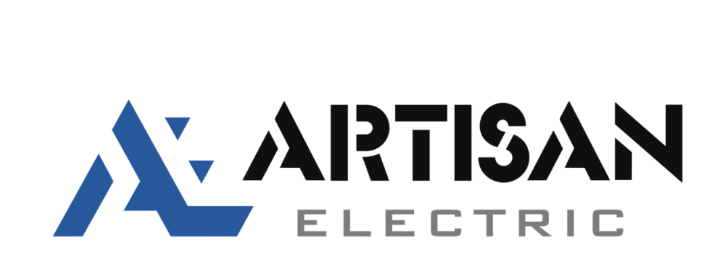Discover the Best Battery Backup Solutions for Your Energy Needs
Explore the advantages of AC-Coupled and DC-Coupled battery backup systems to ensure uninterrupted power supply for your home or business.
AC-Coupled Systems
DC-Coupled Systems
Choosing the Right System
Understanding Battery Backup Systems
As the demand for sustainable energy solutions grows, battery backup systems have become essential for maintaining power continuity. AC-Coupled and DC-Coupled systems are at the forefront, each offering unique benefits and challenges. Understanding these systems can help you make informed decisions about your energy needs.
AC-Coupled systems are known for their flexibility and ease of integration with existing solar setups, making them a popular choice for those looking to expand their energy solutions. On the other hand, DC-Coupled systems offer streamlined efficiency and cost-effectiveness, ideal for large-scale installations. Both systems play a crucial role in advancing energy independence and reliability.
Key Features of AC-Coupled Systems
Micro Inverter Technology
AC-Coupled systems utilize micro inverters to convert DC to AC at each solar panel, enhancing system reliability and efficiency.
Modular Design
These systems feature a modular design, allowing for seamless expansion and integration with additional solar panels or batteries.
Low-Voltage Safety
Operating on low-voltage AC power, AC-Coupled systems prioritize safety, reducing risks associated with high-voltage DC.
Enhanced Performance
AC-Coupled systems excel in partial shading conditions, maintaining energy production and ensuring consistent battery charging.
Centralized Energy Management
Key Features of DC-Coupled Systems
Central Inverter Control
DC-Coupled systems utilize a central inverter to efficiently manage both solar and battery power, ensuring streamlined energy flow.
Direct DC Connection
These systems feature a direct DC connection between solar panels and batteries, minimizing energy loss and enhancing efficiency.
High-Voltage DC Power
High-voltage DC power is used throughout the system, offering potential for greater energy throughput and reduced transmission losses.
Integrated Energy Management
Built-in energy management systems optimize power distribution and storage, adapting to changing energy demands.
Simplified Design
The system’s simplified design with fewer components reduces installation complexity and potential points of failure.
Cost Efficiency
DC-Coupled systems often present lower initial costs for larger installations, providing a cost-effective solution for extensive energy needs.
Scalability Challenges
While efficient, these systems may require more comprehensive upgrades for significant expansions in energy storage or production capacity.
Safety Considerations
High-voltage DC power necessitates additional safety measures, including advanced rapid shutdown capabilities.
AC vs. DC-Coupled Systems: A Detailed Comparison
Safety
- Performance 95%
- Reliability 40%
- Scalability 65%
- Cost 80%
- Overall Efficiency 85%
Performance
- Safety 95%
- Reliability 40%
- Scalability 65%
- Cost 80%
- Overall Efficiency 85%
Reliability
- Safety 95%
- Performance 40%
- Scalability 65%
- Cost 80%
- Overall Efficiency 85%

Artisan Electric: Crafting Tailored Energy Solutions
Final Thoughts on Battery Backup Choices
When deciding between AC-Coupled and DC-Coupled battery backup systems, it’s crucial to consider your specific energy requirements, budget constraints, and future scalability needs. AC-Coupled systems offer enhanced safety and flexibility, making them ideal for those who anticipate expanding their energy systems over time. On the other hand, DC-Coupled systems provide potentially higher efficiency and a more streamlined design, which can be advantageous for larger, static installations. Each system has its unique benefits and challenges, and understanding these can help you make an informed decision that aligns with your long-term energy goals.
Key Considerations for Your Energy Needs
Safety, performance, reliability, and cost are pivotal factors when choosing a battery backup system. AC-Coupled systems are known for their safer low-voltage operations and ease of integration with existing setups. They also offer superior scalability, allowing for seamless upgrades. Conversely, DC-Coupled systems may offer better efficiency and lower initial costs, but they require careful consideration of safety measures due to high-voltage operations. Evaluating these aspects will guide you in selecting the most suitable system for your energy independence journey.
Making an Informed Decision
Ultimately, the choice between AC-Coupled and DC-Coupled systems should be based on a thorough assessment of your current and future energy needs. Consider the long-term implications of each system’s design, efficiency, and cost-effectiveness. Consulting with experts can provide valuable insights and help ensure that your investment in a battery backup system delivers optimal performance and reliability.
Ready to Enhance Your Energy Independence?
Take the next step towards a more reliable and efficient energy solution by reaching out to Artisan Electric. Our team of experts is dedicated to helping you navigate the complexities of battery backup systems, ensuring you choose the right solution tailored to your needs. Whether you’re interested in AC-Coupled or DC-Coupled systems, we offer professional guidance and installation services to maximize your energy independence. Contact us today to explore how we can assist you in achieving a sustainable and resilient energy future.


